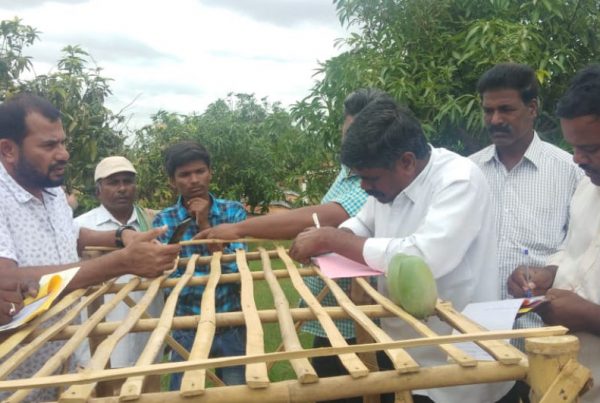LAUNCH OF NAPP GENDER LEADERSHIP SCHOOL
Women in developing countries face many challenges – and gender inequality is a contributing factor to most of them.They face greater challenges than men when it comes to earning fair wages, owning land or having a say in the future of cooperatives, unions or communities. Therefore, Fairtrade at large as been incorporating gender equality into its programs, for almost three decades in order to improve the lives of women farmers and producers in developing countries. It provides support to women with access to Fairtrade Premium for investing in various community development programs. Since the focus is on a systematic change, therefore, gender equality is written into the most basic elements of the Fairtrade system.
Members of Fairtrade producer organizations cannot:
- Discriminate on the basis of gender or marital status.
- Implement discriminatory laws.
- Force prospective workers to take pregnancy tests – or sack women who do become pregnant later.
- Tolerate behaviour that is abusive, exploitative, or sexually intimidating.
- Deny women maternity leave or social security benefits if the rights are prevalent under local laws or collective bargaining agreements.
To further implement the change- Network of Asia and Pacific Producers (NAPP) officially launched -NAPP Gender Leadership School in Central Asia on 4th Feb 2019, covering 25 women and 5 men, producing Fairtrade certified cotton and walnuts. The same will be replicated in South and South East Asia with over 100 participants from Pakistan, India, Sri Lanka, Philippines, Vietnam, Thailand and Indonesia.
The main objective of the Leadership School is to focus on “Opportunities, Access and Benefits” for both women and men covering the entire supply chain market by providing adequate training:-
To develop and enhance:
- Leadership skills: create equal leadership opportunities in farming.
- Business skills: create powerful tool for women to grow as entrepreneurs and managers.
- Practical skills: an added advantage for negotiations and group decision-making.
To create awareness on gender equality.
To promote Gender -inclusive businesses and , a significant percentage of women as farmer suppliers etc.
To train men to help them better understand the challenges women face, become role models themselves and promote gender equality in their communities.
Message from Mr. Kuldeep Singh Chauhan- CEO
”Gender leadership school of NAPP aims to bring awareness in communities on parity in all spheres between men and women. It provide a safe platform to women to express themselves and identify ways to overcome barriers which prevent women and girls from achieving their full potential. Fairtrade NAPP works to empower producers in rural settings where women do most of the production with minimal access to benefits. The leadership school aim to create gender sensitized leaders in communities where we support producer organizations. In this noble cause while we are putting all organizational efforts to promote SDG 5 we look forward to partnerships with like minded organizations to join hands for broadening and deepening this important work”
Message from Mr. Bijumon Kurien- Chair
*Let everyday be Women’s Day*
Fairtrade strategies empower women and inspire them to become leaders. Our NAPP Gender school is a path-breaking initiative for women in agriculture. Women leaders from various producer organisations shall have more opportunities and transcend societal barriers.
Women have strong roles in agriculture and families but we have to examine whether society really gives them due respect or pay them equally. Respecting and protecting women’s interests in society is our mission.
Fairtrade NAPP expresses it’s solidarity with women not just today, but always.
 Although majority of the leaders are usually men, there has been a gradual growth in the number of women leadership across many countries. However, women in leadership roles tend to be seen as exceptions to the rule and are subject to stereotyping.
Although majority of the leaders are usually men, there has been a gradual growth in the number of women leadership across many countries. However, women in leadership roles tend to be seen as exceptions to the rule and are subject to stereotyping.

We believe that the NAPP Gender Leadership School would be a transforming initiative for a Gender Equity in Agricultural Supply Chain. Through this year-long training we intend to strengthen our women at producer organization to evolve as role models.




